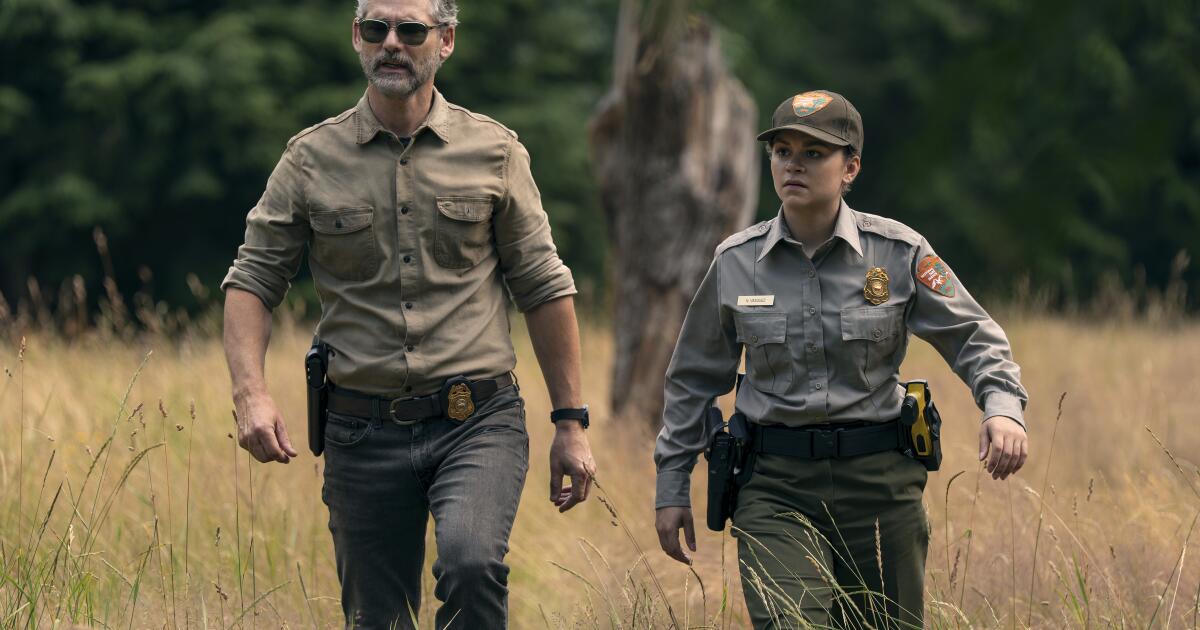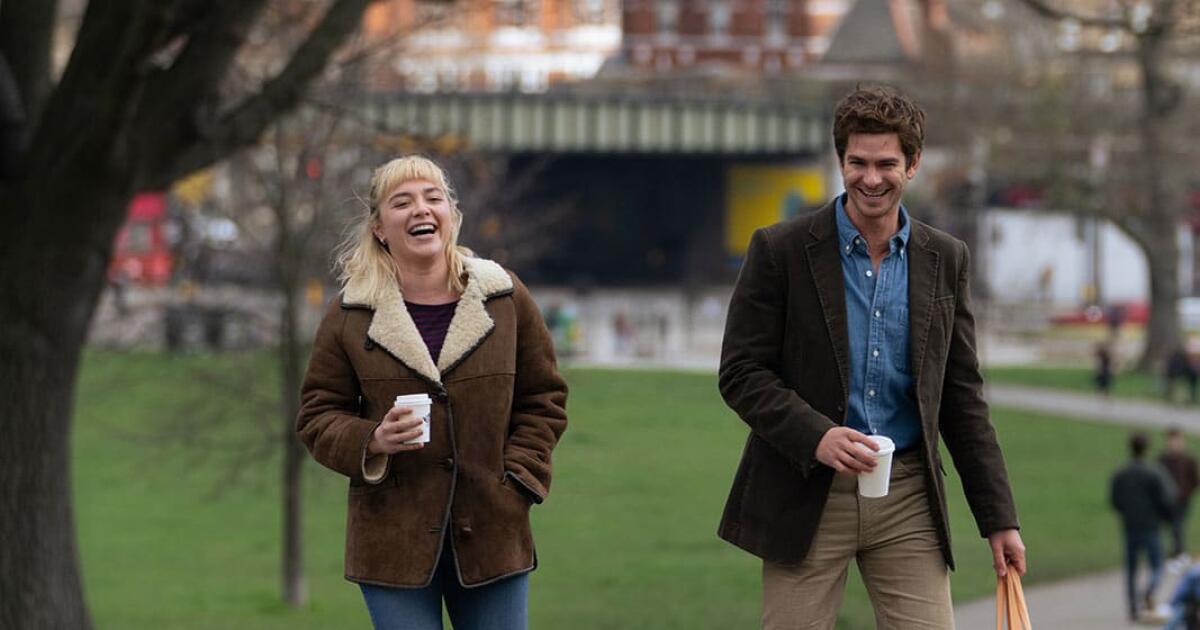“Untamed,” a quasi-police drama premiering Thursday on Netflix, is a vacation from most crime shows, set not in a big city or cozy village but in the wilds of Yosemite National Park. (Never mind that the series was shot in British Columbia, which has nothing to apologize for when it comes to dramatic scenery, and whose park rangers are not threatened by draconian budget cuts nor their parks by politicians’ desire to sell off public lands.)
The mountains and valleys, the rivers and brooks, the occasional deer or bear are as much a part of the mise-en-scène as the series’ complicated, yet essentially straightforward heroes and villains. Lacking big themes, it’s not so much meat-and-potatoes television as fish and corn grilled over a camp fire, and on the prestige scale it sits somewhere between “Magnum P.I.” and “True Detective,” leaning toward the former.
Created by Mark L. Smith (“American Primeval”) and Elle Smith (“The Marsh King’s Daughter”) and starring Eric Bana and Sam Neill, Antipodean actors wearing American accents once again, it’s a limited series, though, for a while, it has the quality of a pilot, introducing characters that could profitably be reused — with perhaps a little less of the trauma peeking out at every corner. Of course, if the show becomes a fantabulous success, the Netflix engineers may contrive a way to make it live again; it’s happened before.
“Untamed” starts big. Two climbers are making their way up the face of El Capitan when a woman’s body comes flying over the cliff, gets tangled in their ropes and hangs suspended, dead. She is hanging there still — the climbers have been rescued — when Investigative Services Branch special agent Kyle Turner (Bana) rides in on his horse.
“Here comes f—ing Gary Cooper,” mutters grumbling ranger Bruce Milch (William Smillie) to new ranger Naya Vasquez (Lily Santiago), a former police officer (and single mother, with a threatening ex) newly arrived from Los Angeles. (The horse, says Milch, who regards it as a high horse, gives him “a better angle to look down on us lowly rangers.”) What are the odds on Vasquez becoming Turner’s (junior) partner? And on a difficult relationship developing into a learning curve (“This is not L.A. — things happen different out here”) and turning almost … tender?
More heroically proportioned and handsome than anyone else in the show, a man of the forest with superior tracking skills, Turner is also a mess — a taciturn mess, which also makes him seem stoic — barely holding himself together, drinking too much, living in a cabin in the woods filled with unpacked boxes, undone by the unaddressed family tragedy that broke him and his marriage. (The dark side of stoicism.) Sympathetic remarried ex-wife Jill (Rosemarie DeWitt, keeping it real), who herself is only “as happy as I can be, I guess,” and sympathetic boss Paul Souter (Neill), try to keep him straight.
“You’ve locked yourself away in this park, Kyle,” Souter tells Turner. “It’s not healthy.” Turner, however, prefers “most animals to people — especially my horse.” Nevertheless, he has a couple of friends: Shane Maguire (Wilson Bethel), a wildlife manager — that means he shoots things, so be forewarned — also living in the woods, but without the cabin, is the toxic one; Mato Begay (Trevor Carroll), an Indigenous policeman, the nontoxic one. And he’s sleeping with a concierge at the local nice hotel, just so that element is covered; it’s otherwise beside the point.
If the dialogue often has the flavor of coming off a page rather than out of a character, it gets the job done, and if the characters are essentially static, people don’t change overnight, and consistency is a hallmark of detective fiction. The narrative wisely stays close to Turner and/or Vasquez; there are enough twists and tendrils in the main overlapping plots without running off into less related matters. (Keeping the series to six episodes is also a plus, and something to be encouraged, makers of streaming series. Your critic will thank you for it.) Still, between the hot cases and the cold cases, with their collateral damage; hippie squatters from central casting chanting “Our Earth, our land;” a mysterious gold tattoo, indigenous glyphs and old mines — there is an especially tense scene involving a tight tunnel and rising water — the show stays busy. Though last-minute heavy surprises don’t register emotionally — trauma overload, maybe — you will not be left wanting for answers, or closure.
And you will learn quite a bit about vultures and their dining habits — not what you might think.






